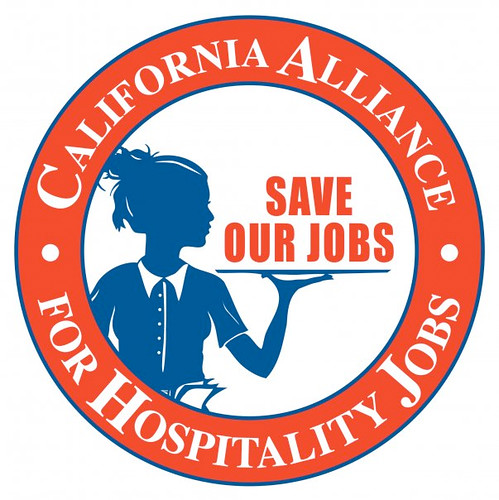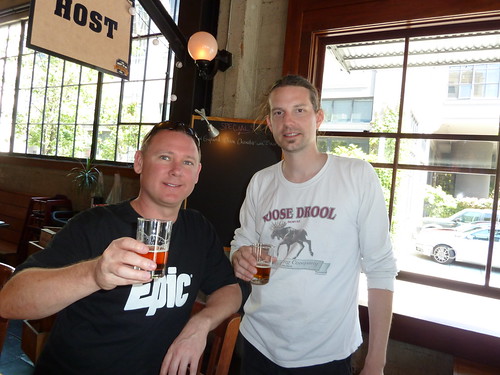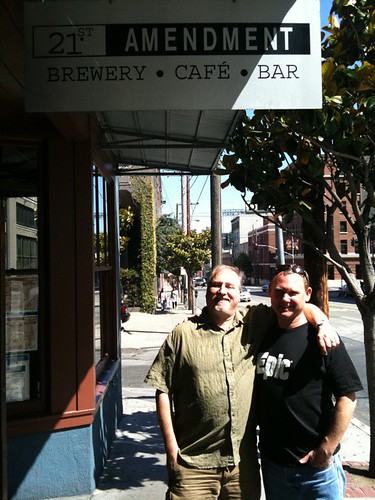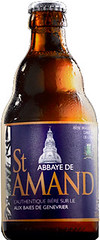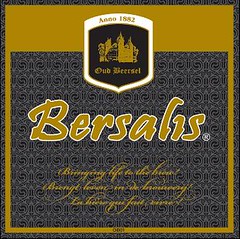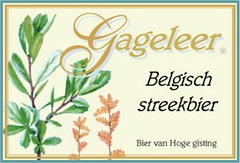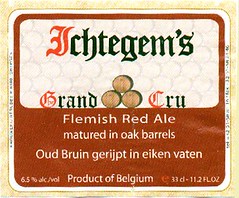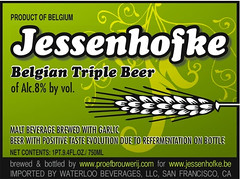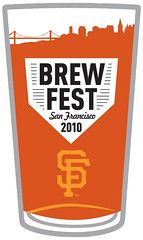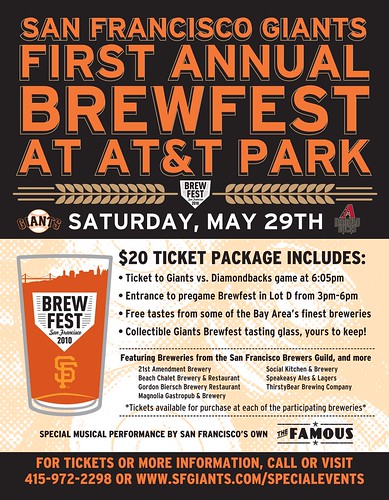
When San Francisco supervisor John Avolos introduced his (and the Marin institute’s) proposed ordinance, the Alcohol Mitigation Fee Ordinance (AMFO), two weeks ago, he was required to also include a nexus study to assess the impact of the ordinance on San Francisco. Despite the vote on AMFO being next Wednesday, July 14, the nexus study was only yesterday finally released, meaning any opposition has a mere 3 working days to review and respond to it. Maybe that’s business as usual for city politics, but it certainly reeks of being unfair at best and at worst undermines the democratic process.
The AMFO seeks to impose a tax on every alcoholic drink sold in San Francisco. They’re calling it a “fee” in order to get around certain political and legal requirements that would make it harder to enact. Supporters of the AMFO continue to say it will amount to “a nickel a drink,” but while that may sound reasonable to many people, it’s nowhere near the truth. The fee itself is 7.6 cents per ounce of alcohol, meaning every single drink and drink package sold will require a separate calculation to determine the actual fee. More importantly, the AMFO will be levied at the wholesale level, which will then be marked up, usually twice. The fee will actually be around 50-75 cents per six-pack and anywhere from $0.75-$1.00 (or more) per pint. And it will be even higher on wine and spirits. The “nickel a drink” mantra is, quite simply, a lie to gain support from ordinary people who won’t examine the reality more closely.
Well yesterday — finally — the City and County of San Francisco released the nexus study, on Friday (which is where, it’s said, news goes to die, which is what they’re counting on, most likely). I had always been under the assumption that the study was supposed to be an impartial look at the impact and the direct link necessary to apply this type of fee. Apparently I was wrong, because the title of the study is The Cost of Alcohol to San Francisco: Analyses Supporting an Alcohol Mitigation Fee. So anything that does not support the AMFO was systematically ignored. There’s not one mention of any of the possible side effects, economic or otherwise that the AMFO will cause. It also means the city essentially spent a lot money for the Lewin Group to prove the case, with no thought whatsoever that it might be wrong or have unintended consequences. That’s your tax dollars. They don’t look at whether it was or wasn’t a good idea, they just started with the premise that it was and worked from there. It would be hard to imagine a worse way to represent the needs of all San Francisco residents. This is quite simply politicians deciding something, without a balanced perspective, and ramming it down the throats of everyone they were sworn to represent. What makes it worse, in this case, is that the impetus came from the Marin Institute, an organization that’s anti-alcohol to its core. The majority of people in San Francisco enjoy drinking responsibly and do so every day without causing the harm that the Marin Institute has accused them of nor do they place any burden on the city’s resources as is further alleged. But the neo-prohibitionists have whispered into the ear of at least one supervisor that there’s some money to be made, and here we are, the will of the people be damned once more.
As I wrote last week, the nexus study is required partly because of the Sinclair decision, a California Supreme Court case involving a similar type of fee for the potential harm caused by lead paint. To me the obvious difference between the two is that lead paint is bad for everybody, whereas not only is that not true for alcohol, but in fact the moderate consumption of alcohol has very real and tangible health benefits. Even without the benefits, most adults who drink responsibly are at the very least not going to emergency rooms, being arrested or otherwise taxing the city’s resources every time they go out for a beer with friends. I don’t doubt that there are such people, but they’re a very small minority and yet the city is willing to punish every single person who drinks and damage one of the few industries actually thriving in a weak economy.
But let’s look at the nexus study itself. At 68 pages, it’s a lot to digest and with the vote next week there’s little time to examine it. That it was released so late was undoubtedly by design, which is annoying, to say the least, and it’s impenetrably dense with lots of charts and exhibits, many that have almost nothing to do with the issue at hand, which is to show a direct “causal connection or nexus between the product and its adverse effects.”
I’ll try to point out as many discrepancies and failures of logic as I can — and of course take a look at the whole thing yourself — but please keep in mind that it’s not an impartial document.
First of all, the study doesn’t even appear to be trying to prove the required causal connection at all, but instead sets out from the premise that it’s just true, because they say it’s true. In the executive study:
The purpose of this study is to estimate a portion of the health-related economic costs of the measurable, direct effects of alcohol consumption to the City and County of San Francisco. These estimates will be used by the City to assess the public health impact of alcohol and inform policy surrounding an alcohol mitigation fee.
So I’d say that’s a pretty big problem right out of the gate. The study doesn’t even purport to do what it’s required to. It’s supposed to be used to “prove” the nexus of harm the ordinance alleges, but it simply states it as fact, with no proof and then goes on to estimate the numbers. To me, that’s the arrogance of the anti-alcohol community. They just assume their point of view is the only one, and figure that just saying so is enough. That your tax dollars were spent on such a farce should be troubling to any San Francisco resident who drinks responsibly.
The study alleges that “[a]ll of the programmatic cost items have a strong connection with alcohol use and high data accuracy, meaning that alcohol-related incidence was accurately identified and attributed.” But the only studies cited (to be fair, I haven’t had time to check them all) were done by biased parties. For example, here’s the first two I looked at. The first study heavily relied upon, The cost of alcohol in California was done in 2008 and sponsored by … wait for it … the Marin Institute. The second, Alcohol-Related Deaths and Hospitalizations by Race, Gender, and Age in California had two researchers, the first, Mandy Stahre, was from the University of Minnesota. The second lead researcher, Michele Simon was from … wait for it … the Marin Institute.
The bulk of the 68-page study is given over to how they estimate the costs, despite the fact that there’s no real attempt made at all to actually prove the direct causal connection or nexus between drinking alcohol and costing the city money. They just keep repeating that it’s true over and over again, presumably because their goal wasn’t even to make the required connection.
But even within their presumption of cause, they list costs that they claim are associated with alcohol use that are characterized as “high causation,” “medium causation,” and “medium/low causation.” Those are not direct causes, and they don’t even say they are, as the Sinclair decision requires. Some of the things listed in those categories are epilepsy and hepatitis, as if anyone who drinks will become epileptic or get hepatitis. It’s absurd. There are so many factors for any individual that may lead to these type of illnesses that it’s hardly reasonable to say it was alcohol that caused them. While the over-consumption of alcohol may be a contributing factor, it’s not remotely reasonable to use it to gin up the costs attributable to alcohol.
Using the same logic as the AMFO, you could apply it to virtually anything sold in San Francisco. For example, each year the City and County of San Francisco incurs costs resulting from the consumption of red meat. These include the costs of providing medical care for people with high blood pressure, treatment and prevention costs, choking, costs resulting from meat-related heart attacks, and the indirect costs associated with disability and diminished capacity. Therefore, all red meat should be taxed. You see the danger. Everything we do, consume, etc. has risks that can be attributed to it. But it’s the individuals who decide how they’ll use them, that is whether they’ll do so responsibly or not. And some people are more susceptible to harm then others, but we shouldn’t punish the people who can and do use the thing — in this case alcohol — responsibly.
The study then moves on to jail and even includes the salaries and fringe benefits of jail workers. Now let me ask a question. If alcohol were outlawed, would they shut down the jail? Of course not, the jail would be open regardless. Crimes will continue to be committed, the need for the city to provide jails has little, if any bearing, on whether alcohol is available. Trying to charge the alcohol itself for something stupid someone does after drinking it would be the same as levying a fee on gun makers and ammo companies. Yet most gun owners don’t commit crimes or kill people. But if a similar fee as the AMFO was imposed on them, everyone would have to pay more for a gun because of the minority that did use them in criminal activity. You think the NRA would let that pass without comment?
It’s also like saying that once someone has a few drinks, that personal responsibility no longer applies. At that point, the AMFO seems to suggest that people can no longer control their own actions and it’s the alcohol now at fault, as if anyone or everyone who drinks alcohol will become a criminal. They just can’t help themselves, ignoring, of course, every single person who does drink a few beers and isn’t arrested or hauled off to the emergency room — which is almost everyone, the vast majority.
The same applies to their next cost, the Fire Department, EMS services and other associated overheads costs. It’s the fault of the alcohol itself, not the individual decisions to have another drink. It doesn’t really matter how many charts of costs incurred by the city they present for these services, that’s their job. That’s what the services are there for. It’s why we all want them, in case someone we know or ourselves needs them. It’s unfortunate that there are people who don’t know when to stop drinking, but they should be responsible for that bad decision, and it shouldn’t be up to the rest of us to be punished for their stupidity. Every person in San Francisco, the state of California and the U.S. already pays for those services through the many taxes we already pay. To say that people who drink have to pay a little bit more just because they choose to drink alcohol — which is legal, I shouldn’t have to say — is ludicrous.
Pages 26 to 31 are devoted to how the fee is calculated. If it takes six pages to lay that out, I’d have to say it may be too complex a scheme. It’s the first time I know it’s been tried, and it looks to be an administrative nightmare, not that the folks pushing this care how onerous any part of it is for their avowed enemies. The city cares about money and the neo-prohibitionists care about doing anything they can to punish and hurt alcohol. As they’ve publicly stated — and even commented directly on this blog — they’re supposedly after the big multi-national alcohol companies, though it doesn’t seem to bother them that they’re also dragging down every small, family owned craft brewer and small winery in California. There are over 225 small breweries and probably even more wineries, not to mention micro-distilleries. They claim not to be “after” them, but the AMFO harms them equally, and possibly even more so since they’re so small it will be harder for them to absorb the fee than it may be for the bigger companies.
Next, there’s an appendix of alleged attributable causes, each with their own AAF, or Alcohol-Attributable Fraction. But the AAF goes completely against the very idea of the nexus study, whose point you may recall was that it is required to show a direct causal connection. What it shows instead, that a percentage of people who drink alcohol may contract a particular disease. That’s not a direct nexus. It’s risk. Adults are free to take those risks. It includes things like accidental poisoning, by people who got drunk and accidentally drank Drano. That’s tragic, but it’s hardly the fault of the alcohol. Same deal with suicide. If your life is so bad that you want to kill yourself and you drink before doing so, is it not obvious that the root causes of the suicide are far more deeply in that person’s psyche than binge drinking? A few drinks, hell even a lot of drinks, is not going to make most people off themselves.
It just goes on from there, blaming alcohol for the homeless, homeless outreach programs, emergency services, etc. as if being homeless is directly attributable to drinking. Homeless people I’d wager drink because they’re homeless and their lives suck and our society does not really help them. But rather than acknowledge a huge glaring societal problem, it’s easier to just blame the alcohol.
Finally, at page 65 (4 pages from the end) in the section Attribution by Type of Beverage and Point of Sale they grudgingly mention that there are health benefits, at least for wine and spirits, none are offered for beer. And the only two even mentioned is that drinking wine decreases cardiovascular risk and whisky — get this — increased tooth fracture resistance. That’s right whisky will make it harder to break your tooth when you fall on your face. That’s apparently it’s only positive.
Despite the fact that they quote both the National Institute on Alcohol Abuse and Alcoholism (NIAAA) and the USDA’s Report on the Dietary Guidelines 2010 (which I also recently reported on), they completely ignored the many, many cited studies in the new report on the dietary guidelines that show many positive correlations between all alcohol — beer, wine and spirits — when consumed responsibly and in moderation. In fact , the NIAAA recommended changing the standard for moderate drinking from a daily one to a weekly standard and stating that the number of safe drinks per day could effectively be doubled so long as the maximum per week was not exceeded.
But perhaps the most glaring omission was the meta-study they did on the effects of moderate drinking on total mortality, meaning how does responsible drinking do in creating a more or less healthy lifestyle. Predictably, it was found that a majority, if not all, of the studies examined show a positive correlation between moderate drinking and living longer and being more healthy.
Total Mortality. In most Western countries where chronic diseases such as CHD, cancer, stroke and diabetes are the primary causes of death, results from large epidemiological studies consistently show that alcohol has a favorable association with total mortality especially among middle age and older men and women. A recent updated meta-analysis of all-cause mortality demonstrated an inverse association between moderate drinking and total mortality (Di Castelnuovo, 2006). The relative risk of all-cause mortality associated with moderate drinking was approximately 0.80. The J-shaped curve, with the lowest mortality risk for men and women at the average level of one to two drinks per day, is likely due to the protective effects of moderate alcohol consumption on CHD, diabetes and ischemic stroke as summarized in this chapter.
In other words, you’ll be healthier if you have one or two beers a day. Isn’t it therefore reckless for the city of San Francisco to make it more difficult for people to live their lives in a way that has been shown to make them healthier? The meta-study shows a direct causal connection between moderate drinking and living longer and more healthy, the opposite nexus that is needed to legally impose the fee.
The remaining three pages are taken up with biased studies that show exactly what the city and the Marin Institute wants to show and ignores anything that doesn’t fit their world view. In other words, the study is a sham. It’s propaganda. It’s not in anyway balanced, and it doesn’t even try to be, even though an honest assessment would actually be in the best interests of the people who live (and pay taxes) in San Francisco.
It completely ignores any economic harm and the loss of jobs that will undoubtedly occur if less people are visiting and drinking in San Francisco. It completely ignores any of the potential harm it will cause. To me, that’s a travesty. Let’s at least have an honest debate. Like the one-sided C.W. Nevius column in the Chronicle, the mainstream and local media has been amazingly uncritical and supportive of the AMFO, swallowing whole the propaganda of the anti-alcohol fee while ignoring nearly completely any serious opposition to it.
If you oppose the AMFO — and frankly you should, especially if you drink responsibly in San Francisco — visit SaveMyCaJob for details on how you can help. But do it quickly, because the vote is this coming Wednesday, July 14.
UPDATE 7.12: I just learned that the hearing for a vote on the AMFO, scheduled for July 14, has been postponed until July 28, though the decision had nothing to do with allowing more time for people to review the nexus study.


